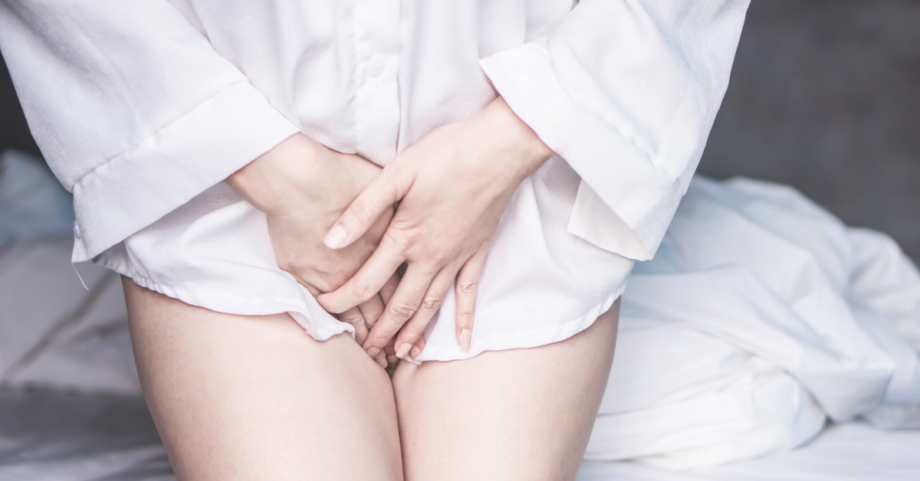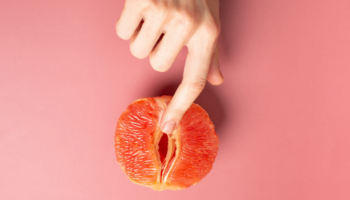Clitoris
Pain in the Clit: Why Your Clitoris Hurts and What You Can do About It
Feeling a twinge of discomfort or outright pain in the clitoral region can be distressing. Yet, it's a surprisingly common experience! So, if you're wondering, "Why does my clitoris hurt?" you're definitely not alone.
According to Dr. Rachel Gelman, DPT, a pelvic floor specialist, the technical term for clitoral pain is clitorodynia. While prevalence varies, studies show about 3.3% of people have experienced clitoral pain at some point in their lives.
This figure may be higher in those with vulvodynia, as many people with this similar condition experience pain in both the clitoris and vulva. Additionally, 14% of people with clitoral adhesions have dealt with clitorodynia.
Let's explore some of the common causes of clitoral pain, when to seek medical care, and practical self-care tips that will help you relieve clitoral pain and improve sexual well-being.
Common causes of clitoral pain
According to Gelman, pelvic floor dysfunction is a common culprit behind clitoral pain.
The superficial layer of the pelvic floor muscles attaches directly to the clitoris, so when these muscles are tense or spasming for any reason, it can cause pain in the clitoris. Moreover, the nerves that transmit pleasure and sensation to the clitoris pass through these muscles, so if muscle tension is impeding nerve function, it can also lead to pain.
However, pelvic floor dysfunction is far from the only cause of clitoral pain. Here are a few other common causes:
Infections
If you're experiencing certain symptoms in addition to pain in your clit, you may have an underlying infection. Gelman suggests watching out for red flags such as: frequent urination (which may indicate a urinary tract infection or UTI), blood in your urine, itching, pelvic pain, unusual discharge with a different texture or odor, and/or a fever. If you're unsure or suspect an infection, don't hesitate to consult a healthcare provider for a thorough assessment and appropriate treatment.
Don't forget, yeast infections, bacterial vaginosis, and sexually transmitted infections (STIs) could also be culprits, wreaking havoc on your sensitive, swollen clit, causing pain, discomfort, and a whole lot of frustration.
Skin conditions & irritation
Certain skin conditions can wreak havoc on the clitoris, leading to discomfort and pain.
As Gelman notes, "Lichen sclerosis can cause scar tissue and adhesions to develop, which is often a cause of clitoral pain. Chronic inflammation can also lead to irritation, making it essential to address any underlying skin issues to alleviate clitoral pain and discomfort."
Be careful what you put on your skin as well. Allergies or sensitivities to soaps, lotions, or laundry detergents can irritate your skin, leading to itching and/or pain. Dermatitis or eczema can also lead to an itchy, inflamed clitoris. And cysts or ingrown hairs can create painful, throbbing sensations around your sensitive clit.
Injury
Clitoral injuries can occur due to friction or pressure from various sources, including vigorous sex or masturbation, tight clothing, accidents or trauma, or strenuous activities like sports.
To prevent irritation, Dr. Diana Goldberg, OB-GYN at Health Strive, recommends taking precautions such as using adequate lubrication during sexual activity, wearing breathable fabrics, and avoiding activities that apply direct pressure.
If you do injure your clit, apply a cool compress and avoid aggravating activities to help alleviate the pain.
Nerve issues
Nerve issues, particularly pudendal neuralgia, can cause clitoral pain.
As Gelman explains, "The dorsal branch of the pudendal nerve goes to the clitoris, so something like pudendal neuralgia would cause pain in the pathway of the nerve, in this case the clitoris."
Other conditions affecting the central nervous system, such as arthritis, diabetes, multiple sclerosis, and spinal cord injuries, can also lead to clitoral pain. Often, pelvic floor dysfunction contributes, and diagnosis may involve a symptom assessment by a pelvic pain specialist, possibly followed by a nerve block.
Other Causes
Hormonal changes during menopause and pregnancy can affect clitoral sensitivity. Goldberg notes, "Reduced estrogen during menopause often results in vaginal dryness and discomfort."
Pregnancy can also increase clitoral sensitivity due to heightened blood flow, and some people experience pain when their clitoris is very sensitive.
Vulvodynia, a chronic vulvar pain condition, often affects the clitoris, causing discomfort from touch or pressure.
Anxiety and stress can also worsen clitoral pain by tightening pelvic floor muscles and increasing sensitivity, making pain more pronounced.
Symptoms of clitoral pain
Your clitoris is a nerve powerhouse, making it super sensitive.
Clitoral pain can be mild or severe, constant or intermittent, and disrupt your daily life. It can feel like a stinging burn, a throbbing ache, an itch, or a stabbing shot, and it's not uncommon for the pain to radiate throughout your genital region or pelvis.
Everyone's experience is different, but one thing's for sure: it's not fun.
When to see a doctor
Start by monitoring your clitoral pain, especially if it's paired with discharge, fever, or sores. If it lingers or affects your day-to-day or sex life, it could be an infection or injury.
Goldberg advises, "You should seek medical attention if you experience clitoral discomfort or pain in the area that lasts for more than five days."
Severe pain should be addressed pronto. Early treatment can prevent complications and provide relief.
Diagnosis & treatment options
Goldberg says, "Diagnosis usually starts with going over your medical history and conducting a physical examination."
Based on the findings, doctors may use swabs to take tissue samples or draw your blood to test for infections. They may also do an ultrasound to detect structural issues or hormonal tests for endocrine imbalances.
Treatment focuses on the root cause. Infections and skin irritation may be treated with medications like antibiotics, antivirals, or topical creams. Physical therapy may be prescribed to treat pelvic floor dysfunction and other muscle tension. In severe cases, nerve blocks or surgery may be needed.
Therapy or counseling can also address psychological factors contributing to the pain as stress and anxiety are common contriubtors to pelvic floor dysfunction.
Self-care tips
Taking care of your body and practicing good hygiene are key to easing clitoral pain.
Cold or warm packs, over-the-counter ointments, and avoiding irritants like harsh soaps are the best ways to treat clitoral pain at home. Goldberg advises "wearing loose-fitting clothes to avoid pressure on sensitive areas," especially while the clitoral pain is at its worst.
Goldberg adds that lifestyle changes like reducing stress, staying hydrated, and using lubricants during hormonal shifts can further ease discomfort.
The bottom line
Clitoral pain isn't something you have to live with. It's very treatable! You can take charge of your health by practicing self-care, using at-home treatments, and seeking medical care if the clitoral pain doesn't resolve within a few days.
With the proper support, you can feel like your best self again and get back to enjoying your body and pleasure!

















